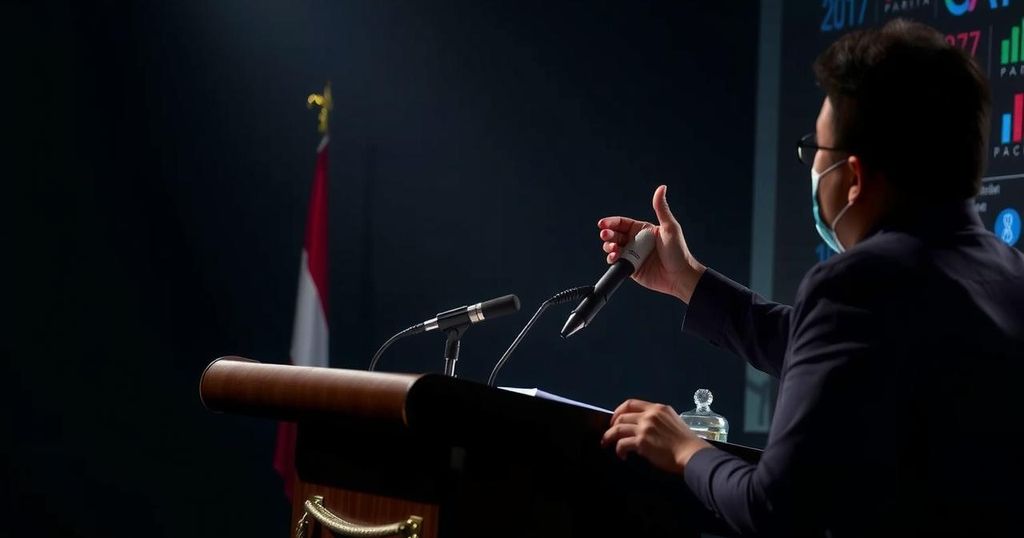A proposed law to combat sexual violence in Indonesia has provoked backlash from conservative factions who claim it undermines Islamic values and promotes non-marital sexual relationships. Supported by advocacy groups, the bill seeks to create protections for victims and underscores the seriousness of sexual violence in Indonesian society. Its future remains uncertain as it has not yet been ratified ahead of upcoming elections, highlighting broader societal divides over issues of women’s rights and family values.
A proposed legislation in Indonesia designed to combat sexual violence has garnered significant attention and sparked controversy, especially among conservative religious factions that argue it contradicts Islamic values and excessively prioritizes women’s rights. This draft law, known as the Draft Law on the Elimination of Sexual Violence, aims to establish a legal framework to address various forms of sexual violence, including sexual harassment and exploitation. The campaign against the bill has gained traction through a vigorous social media initiative, amassing nearly 150,000 signatures on an online petition urging parliament to reject the proposed law. Critics of the bill assert that it normalizes consensual sexual activities, potentially including homosexual relations, without clarifying that sexual conduct should occur exclusively within the bounds of marriage. Indonesia’s ongoing struggle with sexual violence is notable, with reports indicating that a majority of incidents occur within intimate relationships. However, advocacy groups contend that the actual figures are likely understated due to fear of victimization. The National Commission for the Elimination of Violence against Women (Komnas Perempuan) advocates for the bill, emphasizing the urgent need for protections for survivors and a reformed justice system that encourages reporting. Despite having been in development since 2014, the bill has not yet been ratified, raising concerns among advocates that it may falter with the impending elections in April. Activists are rallying to illustrate the critical nature of confronting the sexual violence epidemic in the archipelago, with some likening the current situation to a crisis due to the rising incidence of such acts. The opposition, led by organizations such as GiGa Indonesia, stresses the belief that the law could undermine family values and foster sexual licentiousness. Concerns have been raised that if passed, the draft could obscure the distinction between consensual sexual activity and violence, thereby complicating the discourse around these issues. Advocates for the bill counter this narrative, arguing that it explicitly addresses and seeks to diminish sexual violence and improve conditions for survivors. They contend that enabling victims to seek justice through a more supportive legal framework is essential to changing the prevailing societal narrative that often blames victims. The bill’s provisions also include multiple services intended to assist survivors of sexual violence, addressing the cyclical nature of victim-blaming prevalent in Indonesian culture. Additionally, the proposed legislation aims to enhance the prosecution of marital rape by lowering evidential burdens and broadening the definition of sexual violence, drawing additional ire from its detractors who view these measures as a threat to familial harmony. In light of these dynamics, the legislative future of the Draft Law on the Elimination of Sexual Violence remains uncertain as debates intensify and public opinion continues to crystallize around the implications of such a transformative law in Indonesia.
Indonesia is grappling with significant challenges related to sexual violence, with high rates of incidents occurring in both private and public contexts. The Draft Law on the Elimination of Sexual Violence was conceived to provide a comprehensive approach to tackling this issue, recognizing forms of sexual violence inadequately addressed by existing laws. The legislation has been under consultation with various stakeholders, including legal experts and women’s rights organizations, for several years. However, it faces fierce opposition from conservative groups who believe that the law undermines traditional family dynamics and violates Islamic principles.
The controversy surrounding the Draft Law on the Elimination of Sexual Violence in Indonesia illustrates a clash between progressive reforms aimed at protecting women’s rights and conservative ideologies that prioritize religious beliefs and family structures. As the legislative process progresses amidst societal debates, the outcome of this bill will have significant implications for the future of women’s rights and the fight against sexual violence in Indonesia.
Original Source: www.aljazeera.com






